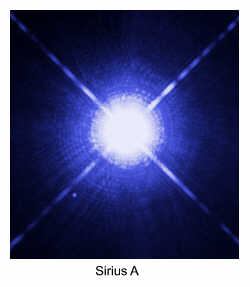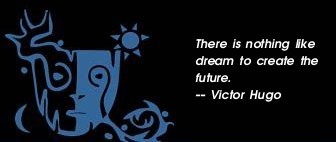|

 Editor's Note: Editor's Note:
Heat and "Dog Days"
by Mary Davis
Searing, record breaking August heat is on my mind as I write tonight. Our Mother Earth is heating up, baking, suffering intense storms, responding to our current human disregard for her — for our — future. Earth is our only home and if we do not wake up and take care of her, we will have no home.
But I also am hopeful. I see signs of rising awareness. And the everyday abundance we still enjoy brings hope. The fig tree I planted a decade ago was loaded with figs this year — enough for the birds, the ants, friends, neighbors, and me — even for my fig — rhubarb preserves and fig chutney! We seem to have a little period of grace ... the veggies and the fruits are still pollinated and growing this year, even as the bees who pollinate 80% of our crops are struggling for survival. May we remember this and take care. May we set our intention to protect this abundance.
And speaking of heat, intense heat, my first participation in a Sweat Lodge Ceremony was this past week. This was a "Big Deal" for me, because I have wanted to do this for many years. Because the ceremony is
sacred, I felt I needed to wait until I was invited, and that happened. To be respectful, I honor the privacy of the Sweat Lodge and of the Cherokee spiritual leader who invited us. I express deep gratitude to her, and I encourage you, when you are invited to participate, Do It! It is important, especially now.
I recall when I was a child, spending most of my summers with my grandparents near Atlanta, listening to them talk about the "dog days" of summer, sitting on their front porch after dinner, listening to stories told, and watching the bright stars, learning the constellations! It was hot weather, but not this hot, and we had muggy afternoon rains, not this drought.
 Many people believe that the origin of the term "dog days" is from the days in ancient Greece — and in ancient Egypt — when the bright star Sirius (actually two companion stars — Sirius A and the almost invisible to us Sirius B) in the constellation Canis Major (the Big Dog) appeared to rise at dawn in the hottest part of summer. Seiros also means scorching, searing. Because of changes through the centuries (earth's axis wobbles due to the pull of our sun and moon, a process called precession), Sirius is now best seen here in the northern hemisphere, not in summer, but in winter. (Sources: various web sites, including www.space.com , www.wikipedia.org, www.astro.uiuc.edu, and www.crystalinks.com.) Many people believe that the origin of the term "dog days" is from the days in ancient Greece — and in ancient Egypt — when the bright star Sirius (actually two companion stars — Sirius A and the almost invisible to us Sirius B) in the constellation Canis Major (the Big Dog) appeared to rise at dawn in the hottest part of summer. Seiros also means scorching, searing. Because of changes through the centuries (earth's axis wobbles due to the pull of our sun and moon, a process called precession), Sirius is now best seen here in the northern hemisphere, not in summer, but in winter. (Sources: various web sites, including www.space.com , www.wikipedia.org, www.astro.uiuc.edu, and www.crystalinks.com.)
Sirius is known as the brightest star we can see, and we see it as luminous and blue white. It is thought to be the fifth closest star to our sun, approximately 8.5 light years away. It is found to the south and east of Orion's Belt and is sometimes referred to as Orion's dog or Orion's hunting dog.
Sirius has impressed humans throughout our history. While for me, much of the following is conjecture, I still find these assumptions interesting. Some persons believe that the "heavy star" that is described in the ancient Sumerian Gilgamesh epic poem (in Gilgamesh's dream) was Sirius. There are indications that Sirius was important in ancient Egypt — that "Sirius" represented Isis and "Orion" represented Isis' consort, Osiris. Sirius was most visible just before the annual flooding of the Nile and the summer solstice. In Greece, Sirius was Orion's dog. In Roman descriptions, Sirius was described as a "red star," although no one knows why, and it is said that red dogs were sacrificed to Sirius (canicula, little dog in Latin). The Dogon people of West Africa are said to have revered this star for five thousand years.
In Sanskrit, this star is called Mrgavyadha, Deer Hunter, and some believe it represents Shiva. In Chinese, it is Tianlang, the star of the Celestial Wolf; in Japanese, Aoboshi, Blue Star; in Scandinavia, Lokabrenna, Loki's Torch.
We find many mentions of Sirius in literature from Voltaire to Doris Lessing to much modern science fiction, including film, television, and games. (See the list in Wikipedia.) Sirius has certainly inspired the human imagination, far beyond "dog days" and their heat.
Trying to find a mention of Sirius by the ancient Maya, who are known to have studied astronomy and mathematics, I went to Maya Cosmos by David Freidel, Linda Schele, and Joy Parker (1993, Harper Collins), especially Chapter 2 and its notes. As the authors examine the texts and fragments remaining, they have many interesting insights, like the importance of the Milky Way, the Sak Be, White Road, and Xibal Be, Road of Awe, and entering this road at death; First Father, the Maize God, who "raised up the sky" and who caused the three stones to be planted when the sky was still "lying down," with these three stones (in the constellation we call Orion) said to be also the three hearthstones of the Quiche Maya kitchen, then and now; and much more. I could not find or decipher a specific reference to Sirius, but I did find many good stories for another day!
Read more about other celebrations in August
Return to the Mythic Passages Menu
Subscribe to the Mythic Passages e-zine
|

